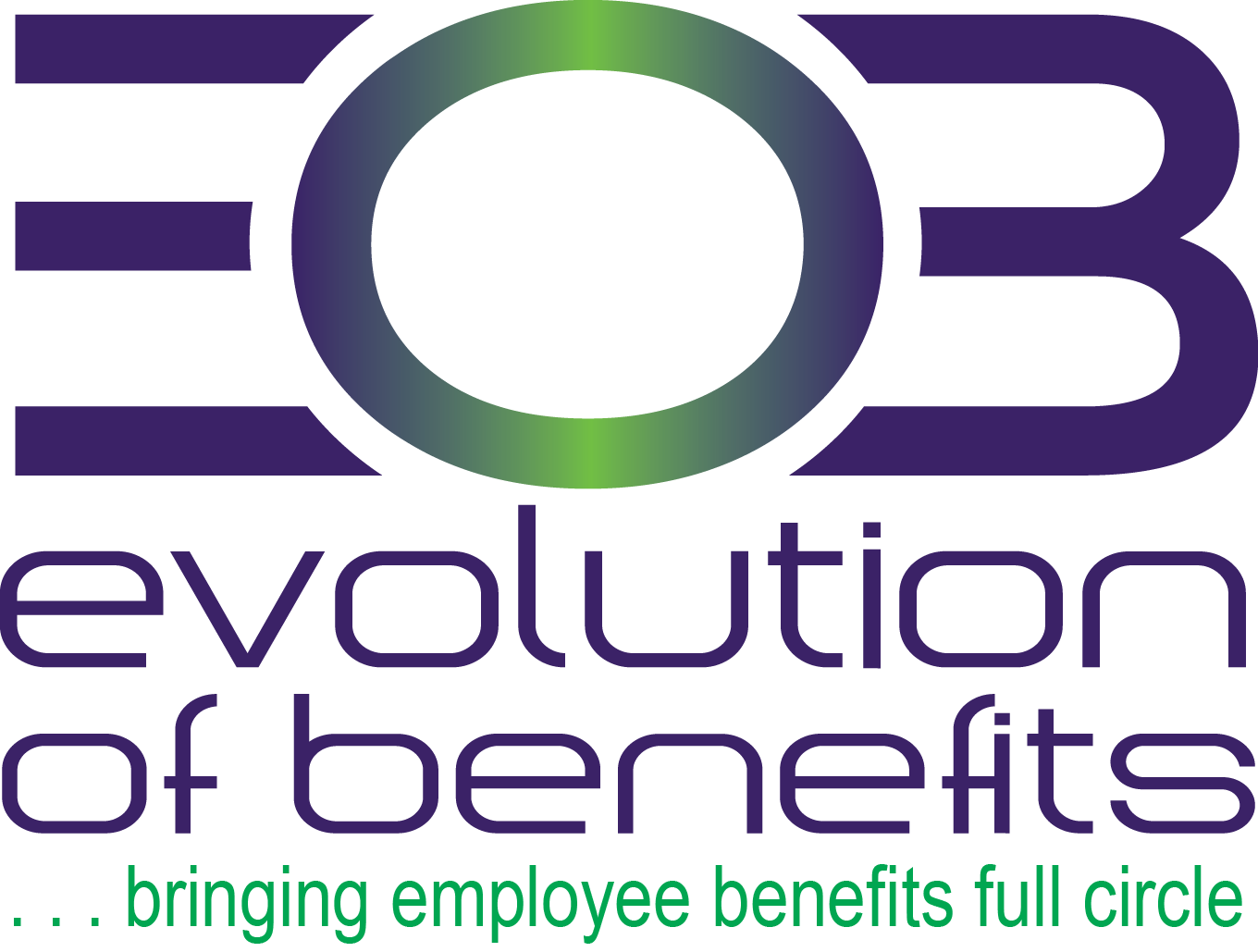5 Ways to Cope with Pandemic Re-entry Anxiety; Breathing Exercises; Cholesterol and You – Live Well, Work Well

View and download the latest Live Well, Work Well newsletter
Re-entry anxiety is an overall uneasiness or uncertainty about returning to the way things were before the pandemic. This feeling may be triggered when meeting socially with friends and family, going back to the workplace or pursuing other important aspects of social interaction. It might be difficult to get reacclimated, but it’s important to remember that you’re not alone.
Managing Your Re-entry Anxiety
Different people have different coping strategies, but there are some common ways everyone can cope with re-entry anxiety. If you’re feeling anxious as you transition back to your pre-COVID-19 life, consider the following five coping tips:
- Start small and gradually build up to more significant social interactions. Don’t rush into anything.
- Set boundaries by letting other people know what you’re comfortable with. There’s no need to apologize for not wanting to do something, so clearly explain how you feel and also be respectful of others.
- Make a post-pandemic bucket list to shift your thinking from anxious to positive. A lot has changed due to the pandemic, but you can focus on the new possibilities.
- Do what makes you happy, even if only for a few minutes each day. It’s important to engage in something fulfilling for yourself regularly.
- Take care of yourself and set aside time every day to relax and reset your mind.
Breathing Exercises for Anxiety
When anxious, you tend to take rapid, shallow breaths from the chest. Chest breathing can result in increased heart rate, dizziness and muscle tension. During abdominal or diaphragmatic breathing, you instead take even deep breaths, which reduces the amount of work your body needs to do to breathe.
Cholesterol and You
Did you know one in three American adults has high cholesterol? Cholesterol is a waxy substance found in your blood. Your body needs it to build cells, but too much can pose a problem. Cholesterol travels through the blood on proteins called lipoproteins. There are two types of lipoproteins:
- LDL (low-density lipoprotein)—known as bad cholesterol—makes up most of your body’s cholesterol. High levels of LDL cholesterol can increase your risk for heart disease and stroke.
- HDL (high-density lipoprotein)—known as good cholesterol—absorbs cholesterol and carries it back to the liver to be flushed from the body.
Bad cholesterol can be elevated by certain factors, including obesity, physical inactivity, unhealthy diet, smoking, excessive alcohol use and family history. High cholesterol usually has no symptoms, so it’s best to have a cholesterol screening every four to six years and discuss lifestyle risks with a doctor.
August’s Live Well Work Well Newsletter – Summer Travel Safety Tips; The Long-term Effects of COVID-19; What’s Better—Caffeine or Sleep?

View and download the latest Live Well, Work Well newsletter
If you’re trading your staycation for a getaway, here are some tips to keep you as safe as possible this summer:
- Get vaccinated. The Centers for Disease Control and Prevention (CDC) recommends delaying travel until you are able to get fully vaccinated.
- Stay domestic. Although Europe continues to open up to fully vaccinated U.S. travelers, the global travel situation is in flux. Some countries are closing their borders again or enforcing strict curfews and mandates.
- Take a road trip. Traveling by car is still safer than flying as it involves less exposure to people.
- Explore the outdoors. Outdoor activities are generally safer. Get outdoorsy or visit small towns to distance yourself from others easily.
- Check travel restrictions. Be flexible and continue checking state and local policies for where you are, along your route and where you are going.
- Keep up with COVID-19 safety precautions. Pack extra masks and hand sanitizer for any outing. Regardless of your vaccination status, you should still wear a mask, avoid crowds and wash your hands frequently when traveling.
If you’re not traveling this summer, use your vacation time to reconnect with friends and family who you’ve missed.

What’s Better—Caffeine or Sleep?
A new study in the Journal of Experimental Psychology tested how caffeine and sleep can impact your day and overall effectiveness at completing tasks. Experts revealed that caffeine can help you stay awake if you’re sleep-deprived, but it likely won’t improve your performance on tasks.
Caffeine can help you get through the midday slump, but it isn’t a substitute for a good night’s sleep. Sleeping is needed to help repair body tissue and cleanse the brain of plaque buildup. Adequate sleep is especially important for people in high-functioning work environments who work long hours, such as medical professionals and truck drivers. Also, not only is coffee a poor substitute for sleep, but overconsumption of caffeine—more than 400 mg daily—can also disrupt sleep.
July’s Live Well Work Well Newsletter – all about pesticide residue levels of fruits and vegetables

View and download the latest Live Well, Work Well newsletter
EWG’s 2021 Dirty Dozen List Is Here
Nearly 70% of non-organic produce sold in the United States contains pesticide residue, according to the Environmental Working Group (EWG). Every year, the EWG ranks pesticide residue levels of fruits and vegetables based on samples taken by the U.S. Department of Agriculture and the Food and Drug Administration, publishing the results in the Shopper’s Guide to Pesticides in Produce.
Included in the report is a list of the most pesticide-tainted produce, which is known as the “Dirty Dozen.” For 2021, the following were on this list:
- Strawberries
- Spinach
- Kale, collard and mustard greens
- Nectarines
- Apples
- Grapes
- Cherries
- Peaches
- Pears
- Bell and hot peppers
- Celery
- Tomatoes
What Can You Do?
Most Americans aren’t eating enough fruits and vegetables daily. Don’t let the Dirty Dozen scare you away from eating fruits and veggies—all properly handled fresh produce, whether organic or not, is believed to be safe to eat.
To remove any pesticide residue, simply wash your fresh produce under running tap water for 30 seconds. If you’re still uneasy about pesticides, buy the frozen or canned versions of your favorite produce as an alternative option. Frozen fruits and vegetables are just as nutritious for you, so find what works best for your household.
If you have any questions or concerns, talk to your doctor.
June’s Live Well Work Well Newsletter – Outdoor Exercise Safety Tips, Gardening Benefits, and 3 Ways to Snack Smartly

As we move into summer, many will want to exercise outdoors to stay active and get some fresh air. That’s great news, as experts recommend at least 150 minutes of moderate aerobic activity each week. Working out in hot and humid weather can put extra stress on your body; however, there are simple precautions you can take to protect yourself.
Workout Tips
By moving your workout outdoors, you can boost your mood and improve your concentration. Also, you don’t need to stick to your own yard or neighborhood. Jogging trails, exercise parks, sports fields and stairs provide endless opportunities to switch up your workout.
Keep in mind the following tips to safely exercise outside during the summer:
• Avoid the hottest part of the day. If possible, plan your workout before 10 a.m. or after 3 p.m. to dodge those strong sun rays.
• Wear light-colored clothing. Dark colors absorb the heat, while light colors will reflect the sun.
Lightweight, loose-fitting clothing will help air circulate and keep you cool.
• Apply sunscreen. Opt for a broad-spectrum sunscreen that’s at least 30 SPF. Reapply every two hours, even if the label says it’s sweatproof. Wearing a wide-brimmed hat can also protect your face from sun exposure.
• Stay hydrated with water. Drink water before you head out, and try to take sips every 15 minutes during your workout—whether you’re thirsty or not.
• Replenish your electrolytes. Instead of reaching for a sports drink after a workout, consider replacing electrolytes through real food like chia seeds, kale, coconut, or fruits and vegetables.
• Listen to your body. If you’re feeling dizzy, faint or nauseous, stop immediately. Sit down in the shade and drink some water until you’re feeling better.
Your body may need to adapt to outdoor workouts, so follow its lead and gradually pick up the pace or intensity. As always, talk to your doctor before you start a new exercise regimen.
Health Benefits of Gardening
It’s likely that you may already have a garden. According to the Garden Media Group, 16 million people started gardening during the pandemic.
As we enter the growing season, gardening is a great way to spend time outdoors—and get some exercise. The Centers for Disease Control and Prevention counts activities like raking and cutting grass as light to moderate exercise—while shoveling, digging and chopping wood are vigorous exercise.
In addition to physical activity, consider these health benefits of gardening:
• Increased vitamin D levels essential for body functions
• Boosted self-esteem
• Improved mood
• Reduced stress and anxiety
Talk to your doctor to learn more about ways to manage your well-being.
3 Ways to Snack Smartly
It’s completely normal to snack throughout the workday. However, it can especially be tempting to opt for the fast, easy (but unhealthy) option if you are working from home. Keep the following three tips in mind to help you snack smartly during the workday at the office or at home.
- Plan your snacking. Think ahead so you don’t desperately reach for unhealthy items. At the beginning of the week, make or pre-portion your healthy snacks so they’re ready to go.
- Be mindful of portions. Avoid eating directly out of the bag or original container, and portion your snacks before eating.
- Choose healthy snacks. Nibble on fruits, vegetables, whole grains and healthy fats to stay satisfied and full. Pass on the junk food since chips, candy and cookies can leave you feeling sluggish.
View and download the latest Live Well, Work Well newsletter
Live Well Work Well Newsletter – Self-care and Your Mental Health

More than half of adults in the United States will experience mental illness—which refers to a variety of conditions that affect one’s mood, behavior, feelings or thinking—at some point in their life. Mental illnesses can occur occasionally, while others are chronic. Common mental illnesses include anxiety, depression, schizophrenia and bipolar disorder.

Mental Health Awareness Month, observed every May, is a time to raise awareness about mental health, break the stigma and support people with mental illness.
View and download the latest Live Well, Work Well newsletter
Alcohol Awareness Month During the COVID-19 Pandemic, Moving 11 Minutes Per Day Can Improve Your Health, Mental Health, + More – Live Well, Work Well



Any movement, no matter the duration, is beneficial, as long as you accumulate enough of it. And, if you take your movement outside, you can improve your mental health in addition to your physical health. Start moving today, and talk to your doctor if you have questions about any lifestyle changes.
Mental Health Support During the Pandemic
Rarely has there been a greater need for mental health support than now. Before the pandemic, there were already shortages of mental health professionals. For example, there were 45 psychologists or psychiatrists for every 100,000 Americans. In some places, that ratio was just one professional per every 30,000 people. Additionally, Mental Health America data reveals almost a quarter of adults with a mental illness say they aren’t able to get the treatment they need.
As the pandemic continues to strain health care resources and take a toll on personal well-being, there are some ways to still receive mental health support. Telehealth is a great place to start to receive mental health care via video conferencing. Additional support resources include:
• Your primary care doctor, who can point you in the direction of mental health resources
• State psychological associations
• Work-based wellness and employee assistance programs
• The SAMHSA’s National Helpline, which is free, confidential and available 24/7 by calling 800-662-HELP (4357)
• The United Way’s free and confidential service for community resources
There’s hope on the horizon with COVID-19 vaccine rollouts, but the pandemic is still evolving. Continue to check in with yourself and reach out for help.
View and download the latest Live Well, Work Well newsletter
Prioritize Your Sleep, Properly Cleaning Your Earbuds + More – Live Well, Work Well

Making Every Bite Count
The foods and beverages you consume have a significant impact on your health. In fact, 60% of adults have one or more diet-related chronic diseases.
The newly released Dietary Guidelines for Americans (2020-2025) offers science-based nutrition advice to develop healthy eating habits and reduce chronic disease risk. For the first time, this edition provides recommendations by life stage, from birth through older adulthood.

Prioritize Your Sleep
Sleep is just as important as nutrition and exercise to help you function at your best. But when you’re juggling work, kids and everyday life, a good night’s sleep may seem unattainable. In fact, 35% of people feel they don’t get enough sleep.

Adults need seven to nine hours of quality sleep each night. In honor of World Sleep Day on March 19, consider the following tips to prioritize your sleep:
Properly Cleaning Your Earbuds
Listen up! Earbud use can lead to health issues such as excessive earwax, ear pain, ringing in the ears or infections. Dirt, debris and sweat can build up over time, so it’s important to clean earbuds after each use. Cleaning can also maintain sound quality and extend the life of your earbuds.
View and download the latest Live Well, Work Well newsletter
Five Ways to Start Your Year Off Right + More – Live Well, Work Well

Five Ways to Start Your Year Off Right!
2020 has likely given you time to reflect and think about what you’d like to change about your lifestyle. This is a good time to make positive life changes and strive for an overall healthier self. Consider the following five tips to start the new year off right:
- Check in on your mental health. Mental health is just as important as physical health in building a healthy lifestyle. Reach out to a professional if you need help.
- Be social. Isolating during the COVID-19 pandemic doesn’t have to mean loneliness. Reconnect with others virtually or while practicing social distancing.
- Get regular checkups. Stay up to date on your annual physicals and necessary health tests. Screenings can help identify health issues to be addressed.
- Drink more water. Consuming sugary drinks, like juice or soda, can cause liver damage, premature aging and anxiety. Avoid excessive alcohol consumption as well.
- Count nutrients, not calories. Focus on improving the overall quality of your diet and not getting hung up on calories. Achieve this by adding more fiber, protein and probiotics to your diet.
Kick Stress Eating to the Curb
As the COVID-19 pandemic and winter season continue, you may be fighting the urge to eat your feelings. Although stress eating may be soothing at first, you likely won’t feel better in the end. Consuming excess calories in one sitting can cause fatigue, bloating, stomach discomfort and weight gain over time. Consider the following ways to cope with stress eating:
Don’t Forget, It’s National Blood Donor Month
Winter is one of the most difficult times of the year to collect enough blood products and donations to meet patient needs. That’s why National Blood Donor Month is celebrated every January. This month, resolve to be a blood donor and consider the following health benefits of donating blood regularly:
View and download the latest Live Well, Work Well newsletter
Live Well Work Well Newsletter – Celebrating Holidays Safely During the COVID-19 Pandemic

‘Tis the season for holiday planning. Yet, gatherings of families and friends, crowded parties and travel may put Americans at an increased risk for COVID-19. The Centers for Disease Control and Prevention (CDC) recommends that you carefully consider the spread risk of in-person holiday celebrations.
View and download the latest Live Well, Work Well newsletter
Live Well Work Well Newsletter – Flu Season is here

The arrival of the fall and winter months signals many things, including flu season. According to the Centers for Disease Control and Prevention (CDC), flu activity peaks between December and February. It’s likely that flu viruses and the virus that causes COVID-19 will both spread this fall and winter.
Many symptoms of the common cold, the flu and COVID-19 are similar, so learn how to differentiate between them on the next page.
View and download the latest Live Well, Work Well newsletter




















